Preventive Dentistry Strategies – 9 Things
-
Ever heard the expression, “the best offense is a good defense”? Well in the world of dental health, the best form of treatment is prevention. Preventive dentistry is the most important factor in protecting your teeth from serious conditions like tooth decay, gum disease, root infection, etc. Oral health conditions not only cause problems in the mouth but have been linked with serious general health conditions including heart disease and stroke. Why risk your dental and systemic health when preventive action is so easy?
Beyond the oral and systemic health problems associated with poor dental hygiene, consider the high cost of treatment you might be faced with. Restorative dental treatments can cost thousands of dollars. In fact, full mouth dental reconstruction can cost as much as $80,000! Considering the relative inconvenience and low cost of regular dental maintenance, practicing preventive dentistry is a no-brainer.
Here are nine strategies to help jumpstart your preventive dentistry lifestyle.
-
1. At-home Oral Hygiene
The first is perhaps the most obvious: practice good oral hygiene habits at home. Start by brushing your teeth two or three times a day and flossing daily. Use a fluoride toothpaste and be sure not to overdo it with the brushing (two minutes max). Rinse with an ADA-approved mouthwash after brushing and limit snacking throughout the day.
Use a soft-bristled toothbrush to avoid stripping enamel from the teeth or causing gum recession. Mechanical toothbrushes can be a great asset because they have a variety of features including letting you know if you’re applying too much pressure (brushing too hard) and when it’s time to stop. There are even Bluetooth enabled brushes that allow you to track your brushing habits and share them with your dentist.
Replace your brush every few months to maintain maximum effectiveness.
-
2. Diet

Your diet plays a huge role in your dental health. Foods that are high in sugars and carbohydrates put you at increased risk of developing plaque and decay. A diet that lacks calcium can increase your risk factors for gum disease and jaw bone deterioration.
It’s important that you maintain a healthy, balanced diet and be sure to brush and/or floss after eating foods that can become lodged between the teeth and gums. To get more information about diet and dentistry, check out the ADA’s Mouth Healthy resource.
-
3. Regular Checkups
You might be thinking, “I brush and floss regularly, my teeth look good and nothing feels painful. Why should I bother visiting the dentist for a checkup?” Well, even “good” oral hygiene habits can have dental health consequences if left unchecked. For example, did you know that over-brushing your teeth can cause gum recession? Aggressive over-brushing can eat away at the gum tissue, which could eventually require an expensive tissue graft to help prevent further problems.
In general, the American Dental Association (ADA) recommends that you visit your dentist twice a year to maintain optimal dental health. However, your dentist may recommend more frequent visits if you are at greater risk of dental disease.
-
4. Sugar-free Gum

Chewing sugar-free gum can be an excellent oral hygiene aid. Studies have shown that 20 minutes of chewing after meals can help prevent tooth decay. The act of chewing stimulates the flow of saliva, which helps to wash away tooth-harming acids produced by bacteria. The saliva also carries calcium and phosphate which can help to strengthen tooth enamel, an integral defensive layer for the teeth.
Certain sugar-free chewing gums also carry the esthetic benefit of whitening your teeth… although the effect of teeth whitening gum is minimal when compared with the far more effective (and traditional) means of bleaching.
-
5. Mouth Guards
If you’re an NBA fan then you’re no doubt familiar with Stephen Curry’s habit of chewing incessantly on his mouth guard. Disgusting a habit as many find it to be, it does help draw attention to the fact that he’s using a mouth guard. And believe it or not, that resonates with young fans who want to be like Steph. And that’s a good thing.
Sports mouth guards help to protect teeth against trauma; in fact, a mouth guard is a must-have form of protection for contact sports. There are even brands of mouth guards that claim to improve endurance and agility.
In addition to sports mouth guards, there are other, more commonly used guards that are worn at night to protect against issues such as teeth grinding and clenching. The gnashing associated with grinding and clenching can cause increased wear on the teeth and lead to other dental health problems.
-
6. Fluoride
Did you know that public water fluoridation is considered to be one of the 20th century’s greatest public health achievements? Fluoride helps to strengthen the teeth and prevent tooth decay. This is why it can be found in a number of dental hygiene products like toothpaste and mouthwash. Fluoride rinses are often administered as part of routine dental checkups. If you’re not using fluoride-based dental hygiene products, ask your dentist for some recommendations. (You might even get some free samples!)
-
7. Say "No" to Smoking

The negative health effects associated with smoking are seemingly endless. Heart disease, stroke, diabetes, cancer… By comparison, dental health issues might seem rather insignificant. But keep in mind that there is an oral systemic connection, so the oral issues associated with smoking can put you at greater risk of some of the more severe conditions associated with smoking.
Smoking (and chewing tobacco) can cause dry mouth syndrome, tooth discoloration, plaque buildup, gum disease, tooth loss and oral cancer. It can also impact your eligibility for certain dental treatments, such as dental implants.
-
8. Say "Yes" to Dental Insurance
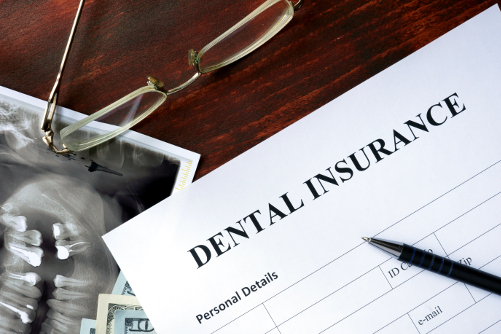
Most people view health insurance as an absolute necessity. Unfortunately, fewer people consider dental insurance to be as important. Instead it can often be viewed as an unwanted expense. Dental insurance is an essential part of preventive dentistry. Not only does it incentivize regular dental checkups (you’re paying for it after all), it also helps offset the cost associated with treatment when it is needed.
-
9. Dental Sealants
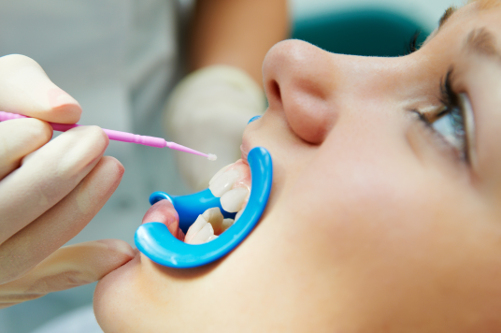
Dental sealants help to protect the chewing surfaces of back permanent teeth to protect against tooth wear and decay (the back teeth are more susceptible to decay). You probably can’t remember getting dental sealants because they are typically applied to children and teens. But it’s not uncommon for adults to get dental sealants as well.









